There is a fundamental problem among social media experts today. Some people have argued that the problem lies with people who are rushing to call themselves an expert without having the necessary experience. Others create some sort of artificial metric to try and put some parameters around who should be allowed to call themselves an expert and who should not. The easier way out (which I myself have taken on occasion) is to excuse yourself from the entire debate by saying that no one is REALLY an expert and we are all just people who use these tools and try our best. Since coming back from SXSW, I have been thinking about this and realized that none of these methods really works because they all assume that a "social media expert" is a single type of person.
To be sure, there are some people working in social media who really shouldn't be – but I don't believe this number is as high as others would say. Instead, I think that many people who could be great at certain roles are simply trying to fill the wrong role. So, to help, I thought I would share what I think the 9 types of social media experts really are. And in true social media fashion, since 9 is such an uneven number … let me know what you think the 10th would be. I will add the best suggestion for a 10th to this list. Thanks to all the great suggestions, I have added 3 more types of Social Media Experts to this post and updated the title to share 12 instead of 9 types. Thanks for all the great comments!
- The Pretender – This is the person who everyone loves to hate. The newly arrived and minted "expert" who has barely used any tools beyond Facebook and Twitter, has hardly any friends or followers, and bases most of their thinking on what they just read from the dozen or so social media "gurus" who frequently share free advice on their blogs.
- The Trainer/Teacher – Being a great teacher is a gift, and not many people truly have it. If you are a natural trainer or teacher, you have the ability to make complex ideas that are part of social media easy to understand. After listening to your direction, someone new to using the tools and thinking about social media will feel dramatically more comfortable using the tools and (most importantly) why they should even bother.
- The Professional Speaker – Popular sentiment is to treat these people as the biggest blowhards in the industry because they get up on stage and get paid to talk about social media. It is the existence of this type of expert, however, that often creates the inspiration and excitement about social media as a whole. Once again, not everyone is necessarily good at taking this role – but listening to a great speaker about social media can create a real impact across the entire industry. Speakers may be the rising tide that can lift everyone else's boats.
- The Content Curator – I have blogged at length about how I believe content curators will be among one of the most important social media jobs of the future. While some may equate the job to that of a digitally savvy librarian, I see the role of a curator as much more of an editor about a particular topic. The curators are the ones that can help us make sense of the exploding amount of content online. The almighty search algorithm won't be enough.
- The Event Organizer – In social media, there are lots of great events. From the more official conferences and summits to the less formal meetups and tweetups. If your gift is in creating really engaging moments for people to gather in real life and to facilitate those moments, you might fit this category. The Event Organizer, too, is vital for the social media industry to thrive because they are the ones that drive the real moments where virtual relationships become real.
- The Community Manager – Having a great community manager may be one of the most difficult roles to fill on a digital team, because the skill set can be quite elusive. A great community manager is dealing with real conversations in real time and reacting to those conversations transparently. If you happen to have these skills and use them well, you could easily grow into the very center of an organization's entire social media efforts (a great place to be).
- The Content Creator – This is one of the most public types of social media experts because their expertise is on display consistently. Content creators are great at writing thoughts in blog posts, sharing their every thought via Twitter, or creating video. In the right role, content creators can become indispensible assets to a team and generate highly original content to engage an audience.
- The Marketing Strategist – If I have one intention with this post, it is to point out very distinctly that not every social media expert should automatically be put into this category. If you are a marketing strategist, you know the best way to use social media to achieve a marketing objective such as promoting a product or service. You don't blindly create a "platform" for a client with every social media tool, or consider "start by listening and then engage people in a conversation" actionable strategic advice. Instead, you are able to solve a real business problem with a smart plan for using social media, and entirely capable of admitting which business problems social media may not be the best solution for.
- The Designer/Builder – In some ways, this is the most important type of social media expert – because these are actually the people who make real solutions. Strategy is great, but at some point you need a real execution plan and these are the experts who can get it done. More importantly, they will also be able to provide advice based on experience for how you may want to implement your plans, and what strategy or tactics you may want to stay away from.
- The Networker/Connector [Added 03/24] – This additional category, suggested by several commenters, is the person who actively uses social media to make connections with people both online and offline. In some cases these individuals may be HR professionals, but in most instances they are simply people who actively believe in being social online and use their connections to introduce people to one another. In the best case they are the ones that enable real connections between people – but in the worst case they can also be shameless self-promoters. (Suggested by Maxiosearch, Ann Marie van den Hurk, APR)
- The Evangelist [Added 03/24] – Often in the role of speaking for a brand and putting a human face on an organization, the Evangelist is the person who uses social media to promote a beli
ef, product or organization. For this individual, social media is a way to share content and engage in conversations about something they are passionate about. As some readers pointed out, this could also be someone who preaches the use of social media internally within an organization. (Suggested by Phil Simon, Ingrid Hein, Russell Pearson ) - The Entrepreneur [Added 03/24] – One category that several readers alluded to but no one specifically suggested was the category of innovator or entrepreneur. This is the person who sees everything in social media and decides that their expertise is in creating a new tool or platform to share with the world. The creators of popular services like Foursquare or Twitter might fall into this category, as well as anyone who has ever launched a new service or app to solve a particular need or desire. Entrepreneurs are the ones who use their expertise to create something new in social media and drive innovation.
You might be tempted to read into this post that there are certain types of experts that are more valid than any others, but except for the first type I strongly believe that each has an important role to play as organizations and businesses of all sizes get smarter about how and when to use social media. If you work in the industry or interact with those who do – my simple plea is that we all need to get better about understanding which of these roles we are particularly good at and focus on that. As a whole I can think of nothing better to help legitimize and grow the entire area of social media and the groups who are able to benefit from using it well.


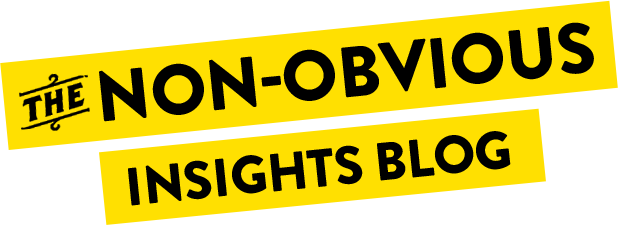




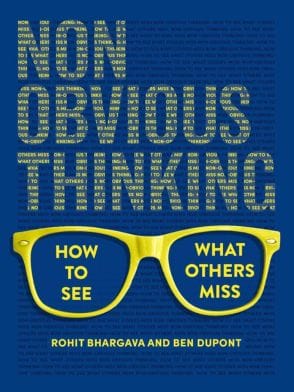

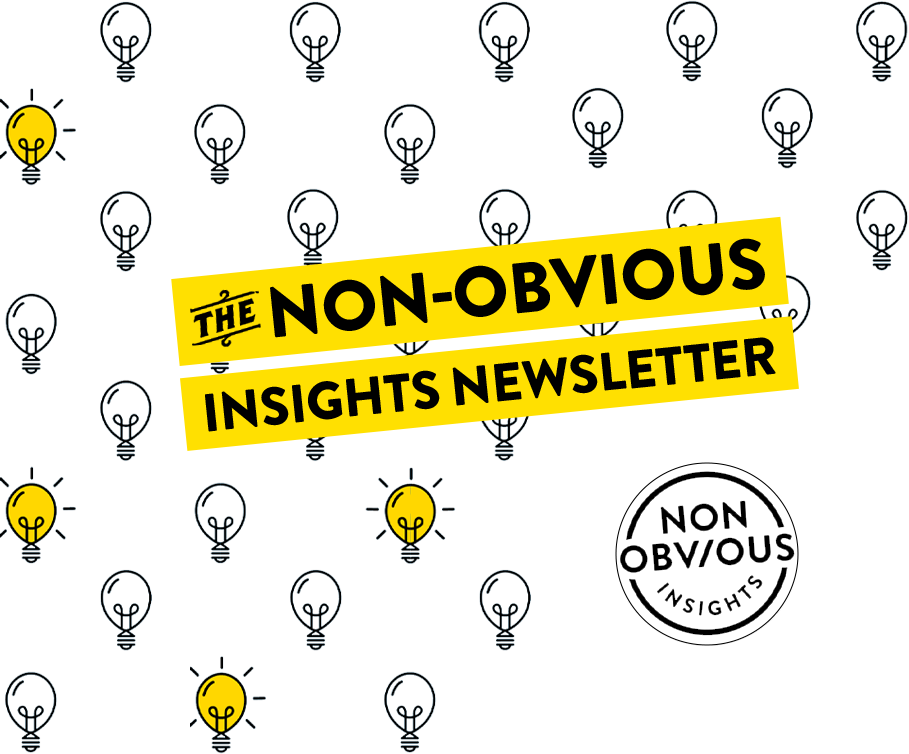


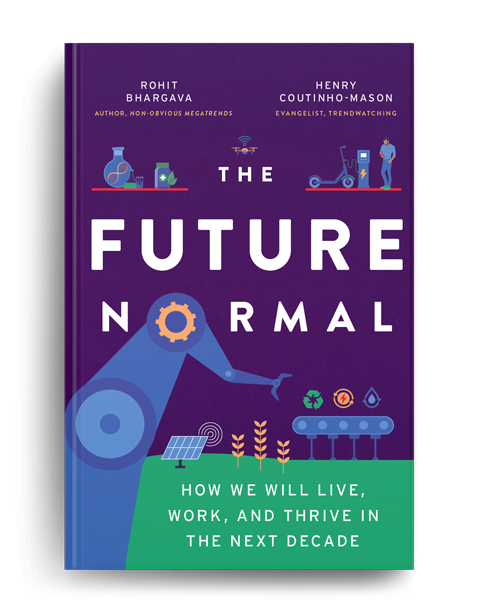
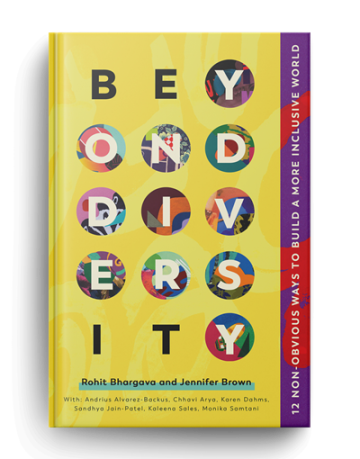
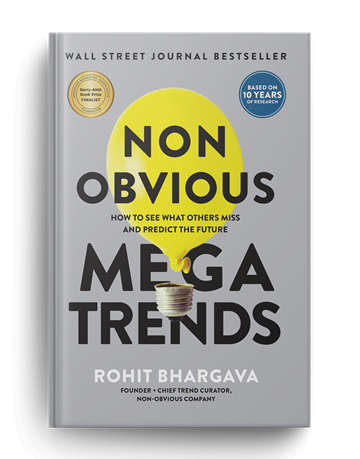
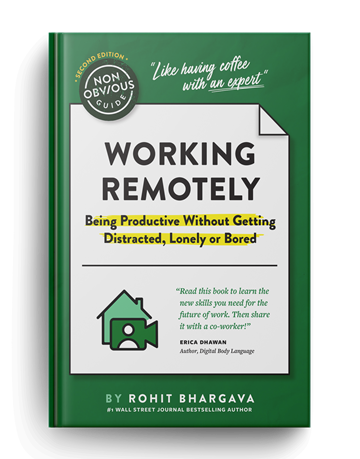
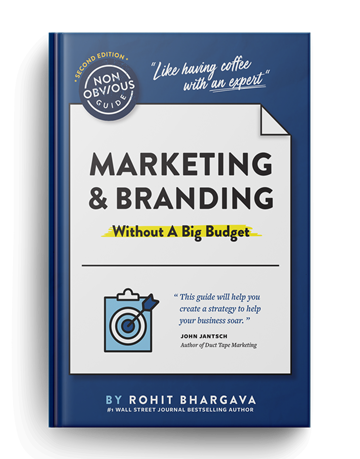
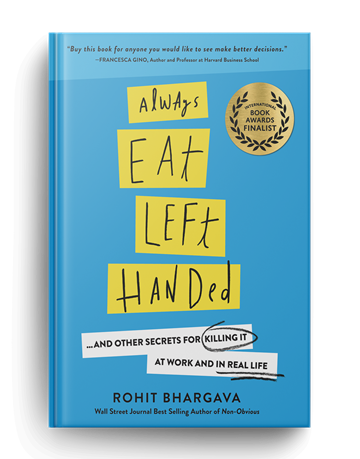
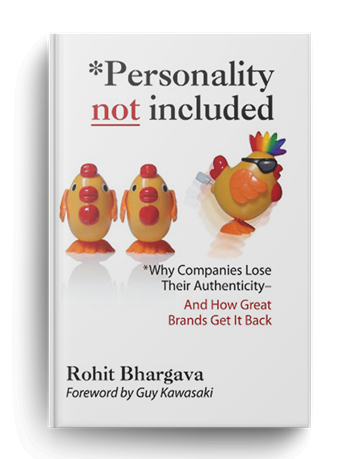
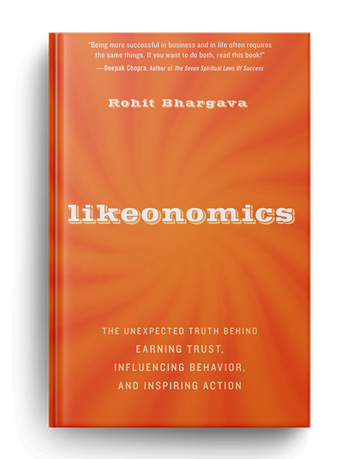

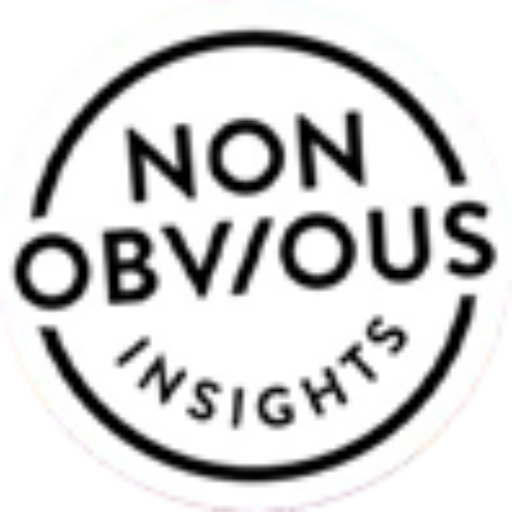
A marketer is a marketer is a marketer… Social or Un-social media and tools to connect with your consumers change… If you understand consumer insights… then a conversation is not a problem… conversing in a community or on a one-to-one basis just won’t matter. Yes, some rules change…and one can learn those and work with them…
Thanks for your post… it’s always a pleasure reading!
Cool post.
Pretty detailed info about the different roles actually.
Gotta love ‘The Pretender’, this is the guy from this video https://www.iamluca.co.uk/whats-a-social-media-guru/
Thanks dude
Luca
I last year I was introduced during a Social Media Panel discussion as the Jedi Knight Ninja of social media for Golf. That has stuck with me for sometime now for which I am somewhat humbled. What the person who tagged me with this title was referring to was my mentoring, teaching, training methods on social networking combined with my take action capabilities from years of business operations background allows me to calmly review best practices, disavow many of the popular methods and provide guidance around many of the pot-holes in the information highway..or toll road as it is turning into.
This designation I have been given could be your #10 category. But warning..there are not many of us around. There are a lot who can mentor, many who can train and even less who are capable of taking action to stop or change what so called experts are saying works and does not.
Hope this helps.
This is a brilliant list – I find the pretender the most irritating. I think most people are used to using social channels now but it doesn’t mean they know how to use them in a strategic context. Creating a simple blog, Twitter or Facebook page isn’t hard – it’s really simple. However, creating a community where the readers, fans and followers engage with each other more than the brand itself is what people should really be looking for. Social media is social our job is to keep it that way. Hence why I commented. lol
Good post.
Great attempt to categorize social media types. Especially like your thoughts on content curator – increasingly becoming important as organizations manage communities.
Interested that you list “professional speaker” but not “author”. Good authors (like yourself) have had similar impact.
Great post, Rohit! To your point that ‘no one is REALLY an expert and we are all just people who use these tools and try our best’, perhaps one additional – possibly overarching – category might be “the student”…as with any professions, we need to be reading, learning, trying, and sharing in order to maintain a certain level of knowledge and experience in a craft to be thought of as an “expert.”
Thanks for all the great posts!
I would consider myself a content creator (branded web video) who relies heavily on key ‘Content Curators’ to make sure that my content gets seen by the target consumer in enough numbers to get the desired impact.
The biggest problem I have found so far are the groups who tackle social media / marketing without using key people in all the roles; you know the ones who shoot half assed video, post it only to Youtube, and then don’t back it up with any sort of community effort. So it dies, fails, and leaves a bad taste in everyones mouth – as well it cost them time and money that they won’t want to spend in the future.
I think you’ve missed the most important people working in this area – those that use social software inside the firewall as business transforming technologies.
Wow – great comments already …
@Sachin – Thanks for your comment … I understand your point, but I have seen many marketers who are great at the traditional elements of marketing, but not so good when it comes to creating a more conversational style. Learning is key, as you noted.
@Luca – Great comment and thanks for the link to the video, I just made it active so people can more easily check it out!
@Scot – Thanks, I hadn’t heard that title before so you’re definitely the first … and I like your observation that it’s not just about the mentoring and training but also the action. The challenge sometimes is that many people working in social media feel the pressure to be all things at once. What if someone is just a great trainer but not necessarily good at implementation? Should that be a perfectly acceptable role to play in social media as well? I think that’s the real question.
@Chris N. – Thanks for the comment and for sharing, you’re right that the creation of the tools isn’t the hard part – it’s what to choose to do that takes the real effort.
@Bret – Good point, I hadn’t thought about Authors as another category as they often overlap with the Professional Speaker category, but with the wealth of books about social media this may be a great contender for #10.
@Chris H. – I like that addition, student to me means anyone who is actively in the space to be learning rather than projecting their own voice into the conversation. Not sure if that would quality as a type of “expert” – but students are one of the most important parts of the overall ecosystem and I’m glad you shared it. Good food for thought.
@Glen – This is a really good point because it speaks to the idea that one person usually can’t take all these roles and the ones that end up missing are based on what a particular expert is not so strong with. Ultimately a successful campaign takes more than just a great strategy or good execution. All the pieces have to work together.
Wow, Rhohit!
You hit the nail on the head with this post. There are so many different ways approach social professionally and I think this post sums it up perfectly.
It’s very difficult to wear all the hats but I think that it’s crucial to have the marketing strategist, content creator, and community managers skills to see real success in the space.
Being a Professional speaker would be nice to. =)
A.k.a making a couple grand for an hour or so of speaking!
In 01 – The Pretender. you suggest to be a ‘social media expert’ or an authentic kind, you need to have numerous friends or followers..
I disagree with this, mostly. Popularity doesn’t collate with expertise in this area. I have just under 1,000 twitter followers, yet a teen who knows how to use TweetAdder and wants to claim he’s a Social Media god can get 15,000 followers in a month.
This is a great summary. It seems to me that we need a “coraller” as well. A role responsible for making sure the right hand, left hand, head, and feet are all working together cohesively.
In my book, there is one kind of social media expert that matters — especially in this economy — and that is the person who is getting paid by others to share what they know about social media.
Rohit. An excellent post and thank you for proposing these archtypes for us to review.
Your post highlights the difficulty of gaining expertise in Social Media. The pace of technological innovation in the online channel makes it hard for everyone to put in the substantial “time” required to be considered a traditional expert.
Traditional experts are really those we clearly see have spent a solid amount of time and effort to understand and explore a particular subject or topic. They are then able to speak with confidence and with authority on the topic, both sharing its past and current status. Content Curation may be a constructive way to bridge the gap between expertise and lack of time to truly become an expert. However, there are other types, you describe, that appear to have measurable expertise ability. For example, Community Managers have been around since the dial-up bulletin board days and, as such, have a more defined role. No?
I look forward to further tracking your ethnology over the coming year and see how it continues to evolve. Maybe with the evolution of more tools, some of these types may continue to add more measurable characteristics to guide us further.
My number 10 would be that social media geek and fan that is constantly sharing with others interesting content. It´s all about creating and sharing, right? But what about if you just share what you like from others? Would that make you an expert after all?
Great Post…Great List
I love old sayings; but, in the area of Social Media none is more appropriate than: “Jack of all trades – Master of None”. A recent marketing project related to Branding Strategy – https://www.stellarpointgroup.com/marketing-strategy-ideas.html – convinced me this area is too fluid for anyone to think they are an expert on every aspect of it.
My 10th category would be “The Adapter” – someone who can develop strategy, manage the implementation process, pass on useful strategies – but then adapt their strategies and programs based on an ever changing set of circumstances and new ideas and then re-direct their efforts in different directions.
Really Great List…Thanks again
I am glad you wrote about this it is hard to call anyone a social media “expert” at all. I think it is changing too much to really get a grasp on it to the point where you can call anyone an expert. Obviously there are those who have a wealth of knowledge into social media uses but what works for one does not necessarily work for another.
I try to retweet or mention peoples blogs when I can but only when I find it interesting enough to share. Wouldn’t you want someone to share this content? You are nothing without your followers that being said though just because you have 10,000 followers does not mean they are necessarily the right ones. It is quality over quantity.
For me I am a new user so I have few followers but I am trying to build a community of likeminded individuals. I am trying to educate myself on the uses, the ethics in the use and types of social medium out there. I think it is fascinating how you can connect with people especially customers in a two way conversation instead of pushing messages. My favorite use of social media is in its use for marketing and using it to get customers involved. For example the Chester Feed for Cheetos http://www.orangeunderground.com
Great article, especially from the perspective that the importance increases as number increases i.e. 1 being start of the ladder and 9 being the top most, with so many people writing and talking about this subject i get a feeling that majority lies between 1-3 and in reality only a handful exists beyond 4, as a starter in Social media bit i think that the numbers can be taken as levels and everybody should start measuring them against the levels as specified by you…incidentally moving up the levels would be tough as Social Media is all about unpredictability as its hard to find how society has its own mood swings, till yday night people were writing about US healthcare policies and today people have forgot that or hastags as its called and have started knowing about the guy who had given negative comments about the president, thats pretty similar to what happend in India couple of weeks back when the misdeeds of an Indian yogi became a trending topic within single day leaving behind all popular hashtags, thats how unpredictable this media is…. hence a good scale given by you Rohit to measure where an individual stands in there claim about social media know how…
Great article….and it is more inclusive of everyone who brings value to the social media table. Sure, everyone loves to hate the blowhards, but I love that you take a higher road approach than some of the blogs I’ve read on the topic!
I’d add, “10. Game Changer” – someone that is able to look at the traditional way things had been done, identify a universal consumer occasion that is being under-attended, implement a monitoring strategy that yields valuable insights into how people interact at that occasion, then kills some sacred cows and along the way makes sure we never look at the business the same way again.
I like maxiosearch’s number 10- the linker/sharer/connector. That’s how I found this blog- through a social media geek. Good stuff.
√ Great post. The one that might be missing is the Bragger, the one who feels compelled to tell you all the details of their daily life.
Synonyms: bag of wind, big talker, blowhard, blusterer, boaster, brag, braggart, bragger, bull artist, bull-thrower, gasbag, gossiper, grandstander, know-it-all, show-off, swelled head, trumpeter, windbag
Great post and super comments.
I’ve never taken to the word, “expert.” I prefer the term, “professional” when I talk about myself within the context of my profession. I agree that it maybe too soon to coin social media experts.
I think your list is spot on. As for number 10? I’d go with maxiosearch’s the “Linker/Sharer/Connector” or Brian Hayashi’s “Game Changer.”
enjoyed reading the post. i would like to add ‘shameless seller’, ‘follower flaunter’ and ‘constant challenger’ to that list.
Dude, let me tell you. This post is lame. And the categories are just pathetic. I wasted my time reading this.
This is a great summary. I think I’d like to add another one: The “Natural Social Media Enthusiast”. This is the person in the office who will happily tell all their friends about updates and naturally likes to type everything that’s going on.
– And then there’s the evangelist/helper. – Someone who likes to offer advice and suggestions to others about what they could do to expand their reach, tap into communities that delve into similar topics, and reply to posts that their peers write -similar to a marketing strategist but without the title or the pressure.
This is good food for thought for self definition.
I’ve been going by the subtitle “a THIS generation communications practitioner” – but perhaps that’s not the whole picture.
I second the “evangelist/helper” expert type/role. Another way of describing the role:
The Independent Advocate – Not all social media experts will be fully affiliated with any particular cause, person or team. Nonetheless, collaborating with certain of these individuals for mutual benefit is often key to your success, either because they are well-connected influentials or are subject matter experts in some domain. Often these federated individuals bring the viral energy of an activist to your endeavor. The utility of collaborating with such individuals largely lies in the fact that they are not fully associated with you, and so they represent and bring external competency, value and repute to your efforts.
This a great list and I third the “evangelist/helper” role. I completely agree that social media expertise is not a binary.
My suggestion for an additional role on this list is “The Client.” A client that knows what they’re buying is still a rare occurance in today’s market. Someone’s got to pay for all this and justify it to their chain of command. A client that understands why social media professionals get paid at all is a blessing.
How about “The Realist” who is willing to share what is and is not possible in social media with a client instead of hyping it too much?
Good list, Rohit. I’d also add “Practitioner” – someone who is doing this work (or who has done it before) on a day-to-day basis for brands themselves.
I know I’m totally biased, but IMHO, this is a category unto itself because it’s such a unique perspective in that list of archetypes.
Jake McKee
antseyeview.com
communityguy.com
Excelent post!. He conocido personas que dicen ser social media experts y es un riesgo cuando pretenden tener la razon respecto al tema, ya que pueden destruir una marca con sus consejos equivocados. Creo que es recomendable escuchar a varios para conocer quien realmente es un experto real.
RESPONSES FROM ROHIT – ROUND 2
@Jez – Good point, I didn’t mean to suggest that you can only be considered an expert and not a “Pretender” if you have a lot of followers. That, as you point out, is quite easy to fake and having thousands of bogus followers is a relatively simple effort these days with robot follows and spam. I do think one of the hallmarks of people who fit this category of “Pretender” are those who don’t actively use any of the tools, and yet profess to be experts on their use for business. This has little to do with your volume of followers, fans or friends, and more to do with how to choose to engage or ignore them.
@mkramerto – Good suggestion, the people who bring all the pieces together are really important.
@Taariq – I’m really glad you posted about the longer term implications for this, it’s a good thing to really consider. I wonder as well if each of these categories will continue to be around and grow, or if some will slowly fade away. I suppose I should put it into my calendar to do a recap post one year from now about it!
@maxiosearch – Love the idea of the “sharer”, that’s going to be on the short list of finalists for #10.
@Go2Mach2 – “The Adapter” is a great role and one that I think is going to be important across all of social media as reacting to what is happening real time and being able to shift strategy and direction will continue to be vital.
@Melanie – Great point, thanks for commenting!
@Piyush – You may be right that the majority of people lie between #1 and #3 in this list. I would not say that the random numbers I chose are meant to indicate a level of importance, though. It’s tough to say that one role is more or less important than any other because it really depends on what a company really needs. Any one of these roles (with the exception of #1) could be THE MOST important one for a particular organization, depending on what they are trying to achieve.
@Brian – I like “Game Changer” – It has a nice focus on the innovation and big idea part of social media.
@charlene – Love the addition of “Bragger” … I was thinking about something like that as well. It was tough to keep to just including one negative category in the list!
@Surekha – All good suggestions, thanks for commenting!
RESPONSES FROM ROHIT – ROUND 3
@Demian – Thanks for wasting your time commenting too!
@Ingrid – Great point, the Enthusiast is a really important part of the ecosystem. This could be someone who has some expertise with social media, but also someone who believes in the promise of it without necessarily knowing how to do everything with it.
@Mt71449 – Thanks for sharing your point (wish I knew your actual name!) The Independent Advocate is an important person to have as part of any viral or word of mouth marketing because, as you note, they add credibility and authority to your postion.
@Lara – A brilliant addition and one that no one else had mentioned before. The client may not always be an expert, but sometimes having the vision to know that social media can make an impact and hiring the right team members is a kind of expertise that we all should respect and acknowledge.
@John T – Good addition, thanks for sharing it.
@Jake – Thanks for commenting, it was good to see you briefly at SXSW! You’re right, the practitioner or doer deserves much more credit in our model because these are the people who know what these things take in order to get done and create the real impact that the rest of the industry can look towards.
@Patricia – You’re right that listening is key to knowing whether you are a real expert or not. Thanks for commenting and giving me a chance to practice my limited Spanish reading ability, I hope I understood your comment right!
The Pretenders are failed Real Estate agents who are jumping on the social media bandwagon. Every time I tag #socialmedia in my tweets I gain 3-4 new followers who are “Social Media Experts”. They have over 10K followers and are following just as many. As I glance through their friends lists, I see they are all Twitter Bots following each other. Their wallpaper resolution is 800×600 or a single pixelated image in the top left corner. I’ll go to their website and see that they are “WordPress Experts.”
I hope they go away soon.
Rohit –
Cool post. I’m a classic marketing and brand strategist who was labeled (by my clients) as a social media expert because I was an early adopter. I was quite uncomfortable with that, in think in part because of some of the things you pointed out.
I have a feeling most of us strategists find ourselves partly in 3 or 4 of your categories, which isn’t a bad thing (I don’t think). My blog, https://brandbuildingbuzz.wordpress.com has proven to me that today’s social media expert probably needs to be a social media renaissance man, being good at multiple disciplines.
Thanks for the post!
I love this list! I’m more of the Teacher and Content Creator. But I’m so glad you mentioned about the Pretender. You can see right through them.
The 10th can be the spammer …. he is someone who keeps posting irrelevant stuff without any idea abt his own objectives or the impact it is going to have on the target market
Nicely done…might add The Listener (okay, I admit, I fall into that “category”) but it’s what so many companies and “experts” miss, by diving in and finding the rocky bottom is unyielding and rather painful and they end up limping away.
We developed a “listening” tool that leverages Artificial Intelligence and we go around Google and Yahoo with our own search engine (there’s good reasons for that.) so we’re kinda entrepreneur too?
Anyway, the Listener helps the business understand the nature of the conversation, how groups are organizing for or against them and so on…
Where would you place the Thought leader role?
Thanks for the article. I would like to say this. I think the “social media expert” articles need to be laid to rest once and for all. Social media involves a number of disciplines… PR, Branding, SEO, Sociology, Customer Service…any of which can take yrs to become an “Expert” at. As Jason Falls said about a yr or so ago, a lot of the people starting the arguments about who can be called an expert need to just go get busy with paying clients and quit arguing.
Truth is, in every industry there are people who are better than others, and underperformers who oversell themselves as experts. I’ve had to cringe for 20 yrs as I’ve watched people sell themselves a professional graphic designers/experts who should have been allowed to even do cake designs.
Thanks for listening.
Kevin
Let me respond with a Venn diagram: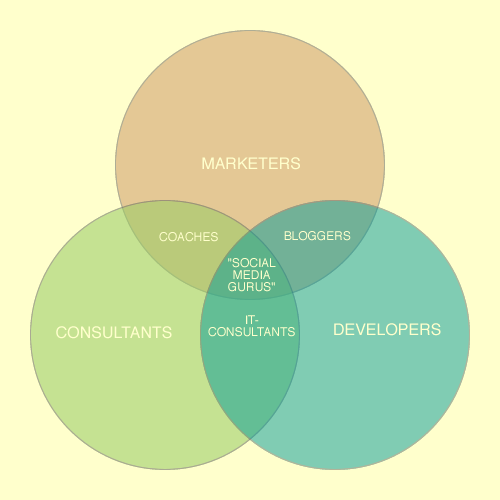
The “Content Curator” might also be confused with the “Content Recycler” or “Content Aggregator”. Did I say confused?
I have to say that, I’m not a one type kinda guy. In fact I’d say I could see myself having a little bit of each type = even the faker, I’m sad to say. I’ve done a great job branding my own self, and I’ve posted some great blog posts out there on my blogs, and others.
No matter how passionate I am about social media, I feel like I’m faking if I can’t convince companies the importance. It’s like a political leaning, or religion- this overwhelming desire to convince and convert people to social media. (Big evangelist in me). I’ve also been known to shamelessly promote myself (6 years of internet marketing experience there).
I’m also an entrepreneur type, I have 50 ideas a day that would compete with the likes of 4square, twitter, and others if I had the programming skillset.
Great list!
I really like the idea of constructing nomenclature. Even if it’s casual or imprecise, it’s useful to label things and give people a common vocabulary. In the long run though, I strongly suspect the title social media *expert* is a misnomer.
Given that social media has as a main consequence the displacement of the middleman, any attempt to set oneself up as a mediator is on a shaky foundation. As if the trend towards ditching the middleman will reverse itself. That’s like asking a locomotive to make a u-turn on a dime. Reckless.
Disintermediation is the name of the game. If peeps are unfamiliar with the concept, it needs some development and is highly worth investigating!
Final note: I’d love to see a category for Gestalt thinkers. There is room at the table for people who can suss out the larger picture, just like your excellent prompt and effective crowdsourcing have done here.
I don’t know what you would call these big picture thinkers, maybe “The Pointy Heads?” At any rate, social media is a team sport. Bravo for your team’s win! =)
Great post!! I honestly never thought of it this way, and surprisingly you all were able to come up with 12!! Wow…
A lot of these social media type IMO are phases. People move around some of these types at different stages in their lives. For instance, I would label myself a Content Creator. However, 3 months ago I honestly don’t know what position I would have been in. Isn’t there something like the honest-to-God-newbie?? I just got into the business about 7 months ago, I initially started on basic SEO and I’m just branching into the social media sector and so technically I know I still have a long way to go…
Nice post though.
It’s hard to find a non-expert these days, they are becoming a dying bread.
I sound more like a content curator, although I might be giving myself too much credit.
Off I go to say something clever to my social media followers, i.e. to retweet your post:).
Best,
Ana HoffmanYourNetBiz
This is EXCELLENT Rohit! Thanks for sharing. I wrote “7 Signs Your Media Consultant is Really An Expert” https://www.mirnabard.com/2010/01/7-signs-your-social-media-consultant-is-really-an-expert/ just for fun and to keep it simple for everyone, but you hit the nail on the head!
Thanks again,
Mirna Bard